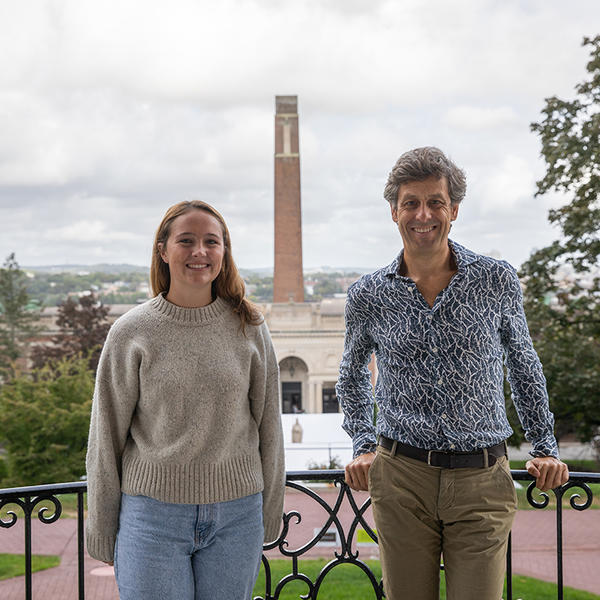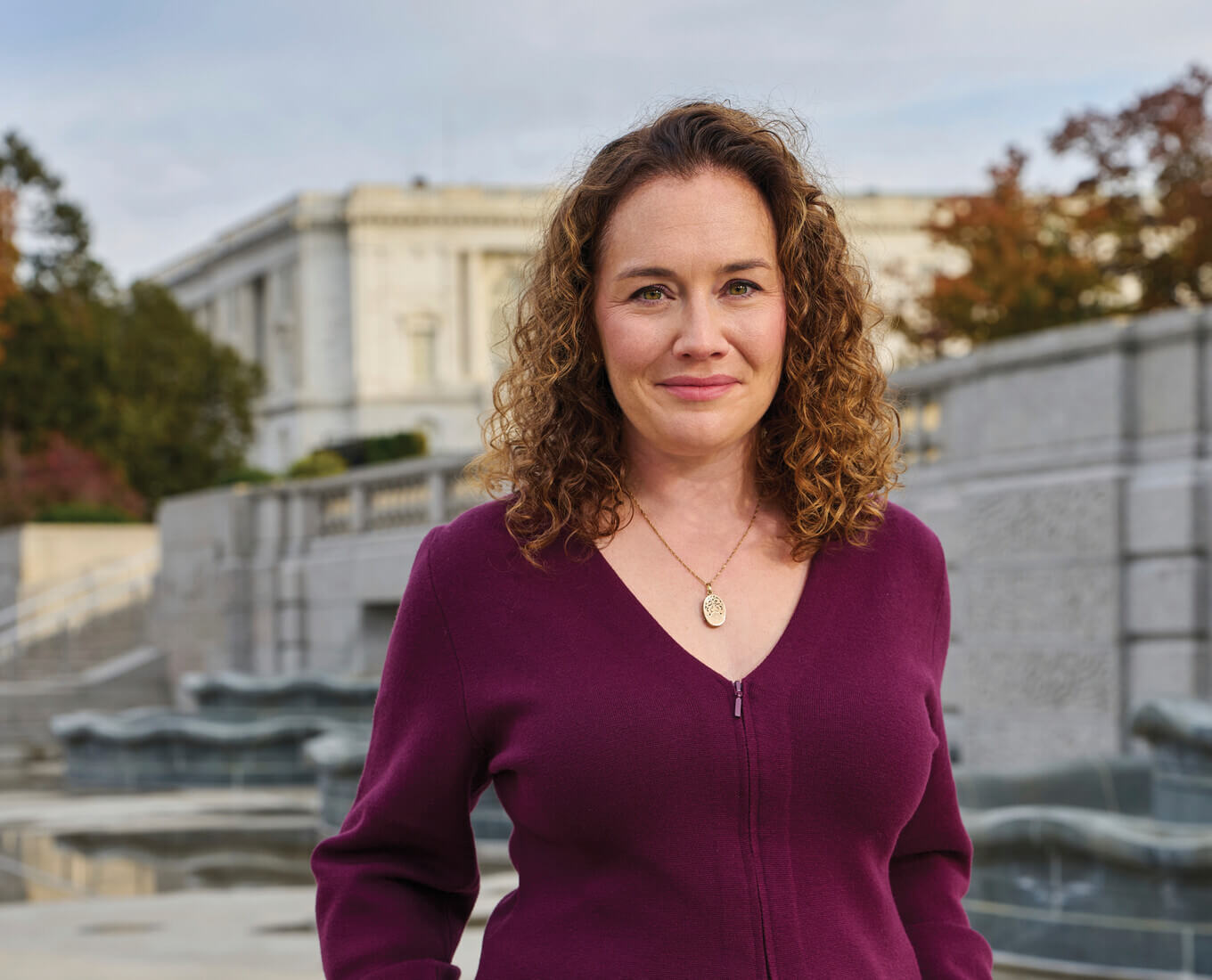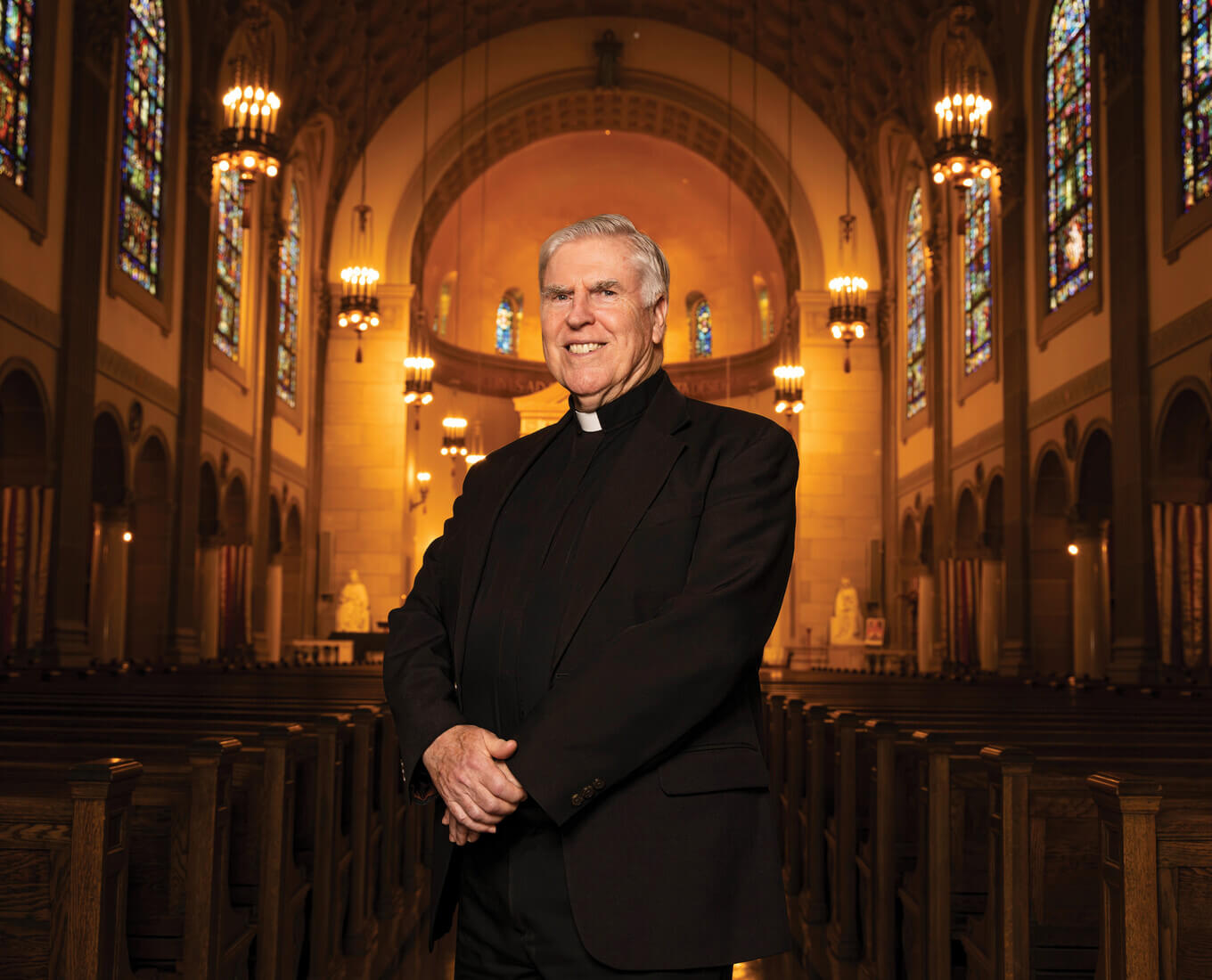Maggie Hartnett ’23 knew she enjoyed the architecture classes she took during her first year at Holy Cross, but wasn’t quite sure she wanted to be an architect. Then, when the COVID-19 pandemic hit, she took note of the changes in urban living — people leaving cities in search of more space, others moving cities when remote work made it possible. And it gave her an idea: She could create her own self-designed major to study urban environments.
“With the pandemic, obviously, we saw a lot of changes in the way the urban environment looks and I thought studying it could be extremely relevant going forward, in terms of how urban spaces are going to change and evolve,” says Hartnett, who grew up in Wellesley, MA. “So my major is Urban Studies, which essentially combines the disciplines of architecture, environmental science and sociology.”
At Holy Cross, students can propose student-designed majors or minors through the Center for Interdisciplinary Studies, pursuing their own unique interests with the help of faculty mentors. Hartnett took her idea to her architecture professor, David Karmon, who is a professor in the department of visual arts and the advisor for architectural studies, another self-designed program at the College.
“We very much want to support the students’ interests. One of the great things about studying at the College is that we have students who are thinking about the bigger picture,” Karmon says. “What I found so great about Maggie’s proposal is that she was thinking about both her interest in architecture, buildings and the built environment, but also the notion of everything that’s happening recently [with the pandemic] and how to put these things into dialogue. And Urban Studies provides a really exciting forum for these kinds of investigations.”
Karmon immediately started working with Hartnett to create a proposal for this major, putting her in touch with faculty in departments with courses relevant to urban studies. Hartnett says she is grateful for all the guidance provided by Karmon, as well as Lorelle Semley in the history and Africana Studies departments, Amy Finstein in the visual arts department, Daina Cheyenne Harvey in the sociology and anthropology department and Sarah Luria in the English department.
“Not only did I feel supported, like it was possible to create this major, but my professors were really excited about it, too,” Hartnett says. “It’s been great to have the freedom to choose the classes I want to take, and I’ve been really excited about all my classes in all these different disciplines.”
Hartnett’s professors shared her enthusiasm so much that they drew upon her major as a template to create a new Urban Studies Minor program, which is available to all Holy Cross students beginning with the Fall 2021 semester.
With courses from departments across the College on topics ranging from architecture and green design to the economics of inequality and the environment, the Urban Studies minor will explore themes around how we build our cities, what we do in them and how they shape us.
“In this kind of program, you can join together with faculty working in separate areas to explore different ways of thinking about similar questions and make new connections between different disciplines. These are the kinds of amazing opportunities that make studying in a liberal arts program so special,” says Karmon, who will serve as advisor to the program, working with faculty from the departments of architectural studies, economics, environmental studies, history, psychology, political science and sociology and anthropology.
Students can fulfill Urban Studies requirements both on campus and during study abroad, like in the “Sediments to Pediments” Maymester course that Karmon will be teaching next year in Rome alongside biology professor Sara Mitchell. The course examines geological evidence in and around Rome and explores how builders have worked with these materials throughout the history of the city.
Closer to home, in Worcester, many Urban Studies courses will have a community-based learning component. “Worcester is the ideal environment for my major,” Hartnett says, citing the growth of the city, both in terms of population and new developments like Polar Park, home to the Worcester Red Sox minor league baseball team.
“Worcester offers wonderful opportunities to experience the things we are talking about in an immersive way,” Karmon agrees, pointing to the city’s industrial past and current efforts to maximize access to the outdoors in the nearby Blackstone River Valley. “Through the case study of looking at Worcester and the whole region, we have a model for thinking about how communities change over time and also how they transform the world around them.”
Student-Generated Urban Studies Minor Debuts at Holy Cross

Maggie Hartnett '23 & faculty advisors team up to create new Urban Studies minor, which will explore themes around how we build our cities, what we do in them and how they shape us
Read Time
4 Minutes

